- No products in the cart.
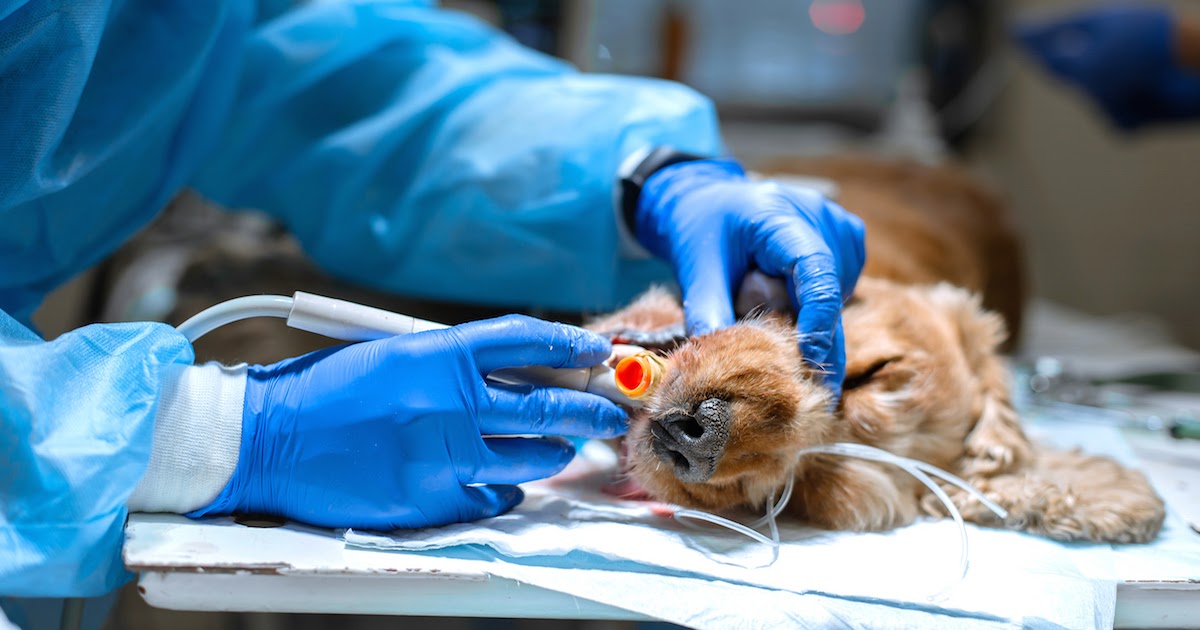
E-Mail: info@silversky.com.sg | Phone: +65 6742 7845
Contributing Writer: Chan Choy Yu
According to the American Veterinary Medical Association, about 70% – 75% of dogs and cats over the age of three are afflicted with at least one form of dental disease. More often than not, the main cause is pet owners who fail to provide daily oral care until it’s too late and professional dental scaling or surgery is needed.
These services are not cheap either, with dental scaling in most animal clinics here in Singapore costing $300 on average. On the other hand, a pet toothbrush and toothpaste set only sets us back by about $20. So why do we leave ourselves with no choice but to opt for the former?
Let’s explore how we can take better care of our pets’ oral health.
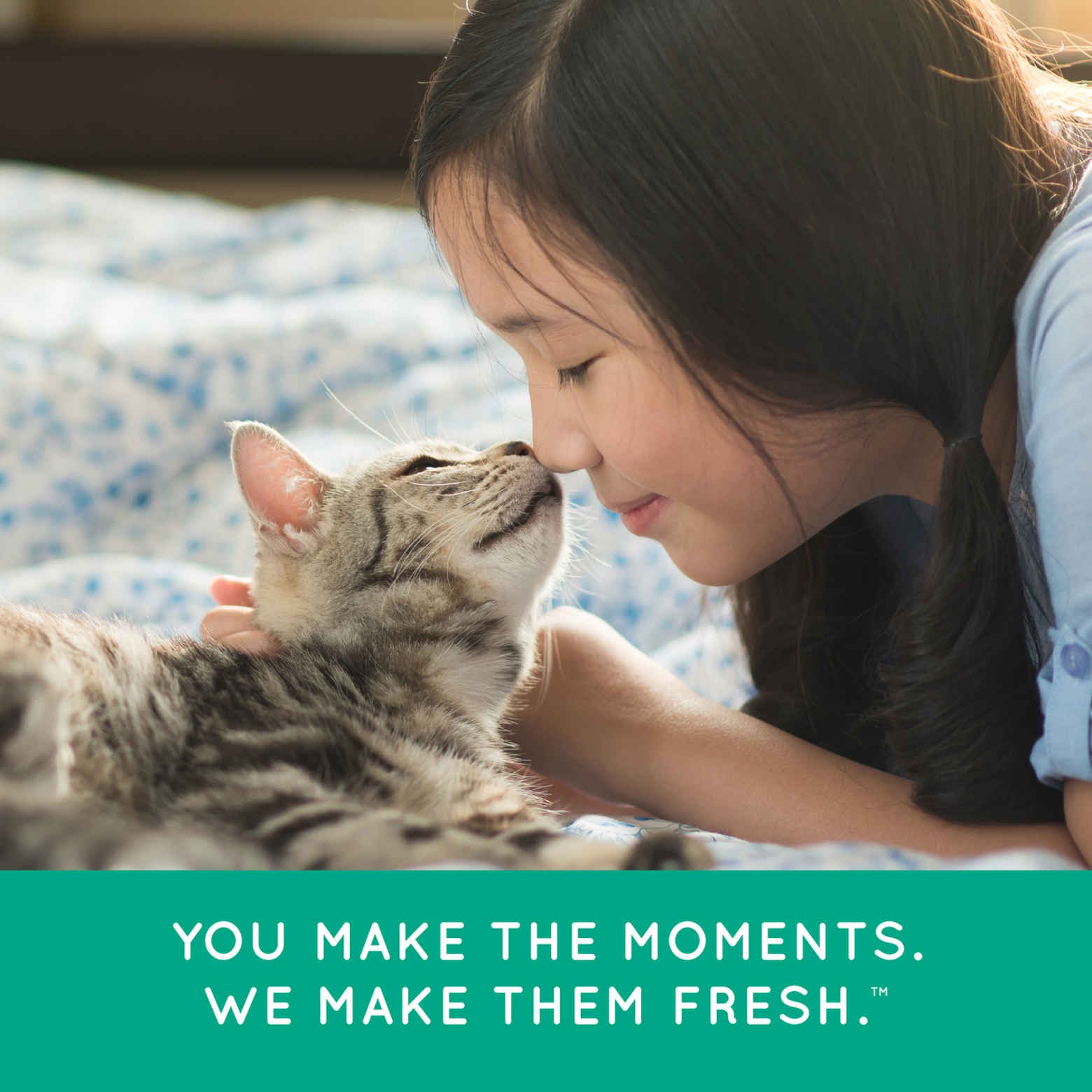
Just like people, dogs and cats need to have healthy gums and teeth. Proper oral care for our pets includes regular brushing of their teeth at home and taking them for professional dental cleanings. We’ve all been told to brush our dog’s teeth. We know we should. We mean to do it.
Unfortunately, for a variety of reasons, many pet owners do not brush their pets’ teeth. For some, time is the problem, for others, it’s an uncooperative pet who makes it impossible to get a toothbrush near its molars.
It’s true that dogs and cats went thousands of years without toothbrushes, oral cleanings, and dental X-rays, but so did people. And our mouths, just like those of our four-legged friends, suffered for it — with gum disease, tooth loss, chronic pain, and more. Also, in those days, people and animals did not live as long as we do today. Yes, dental health is linked to your pet’s longevity. Let’s tell you why.
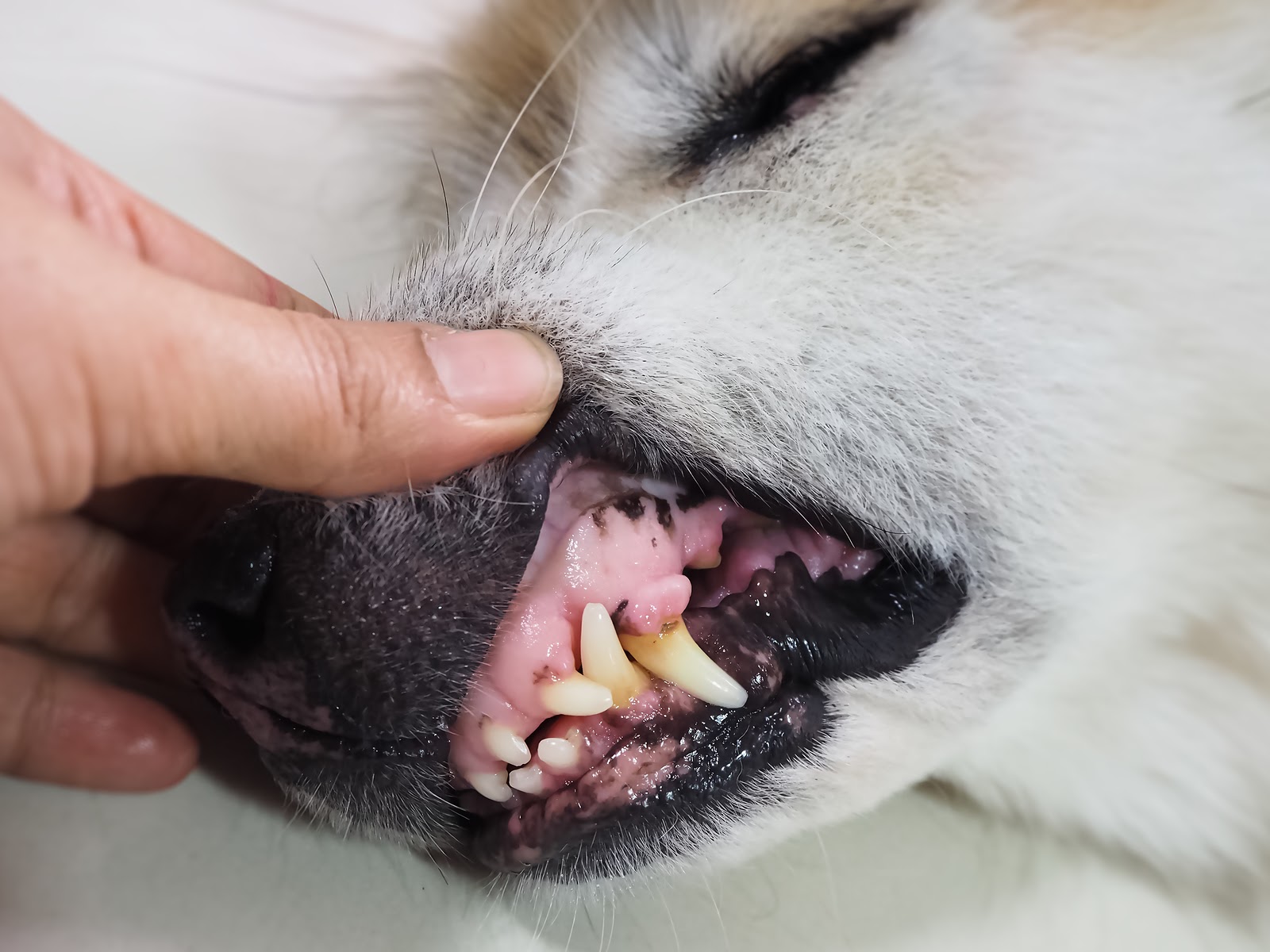
Firstly, let’s break down periodontal disease and why it’s detrimental to your pet’s overall health. Also known as gum disease, it is a bacterial infection that affects the areas around the teeth, including the gums, soft tissues, and the jawbones, and exhibits itself in four stages.
Stage 1: It starts out with the formation of a bacterial film on the teeth called plaque. When the bacteria die, they become calcified by calcium in saliva, forming a hard, rough substance called tartar or calculus. This provides a surface upon which more plaque can accumulate. If left to spread, plaque can lead to inflammation of the gums, causing them to get red, swollen, and bleed easily, a condition known as gingivitis.
Stage 2: If tartar buildup continues unchecked, an infection can form around the roots of the teeth and below the gum line. There is a 0% – 25% bone loss, and the gums are swollen.
Stage 3 & 4: In the final stages of periodontal disease, the tissues surrounding the teeth are destroyed, the bony socket holding the tooth erodes, and the tooth becomes loose. There is between 30% to over 50% of connective tissue and bone loss, and is very painful for your pet.
Your pet’s bad oral hygiene can cause disease (eg. endocarditis, diabetes) in other parts of the body, including the heart and liver. This is because bacteria in the mouth enter the bloodstream through gum tissue that is weakened and compromised. If your pet’s immune system doesn’t destroy the bacteria in the blood, it can travel to other organs and cause damage there.
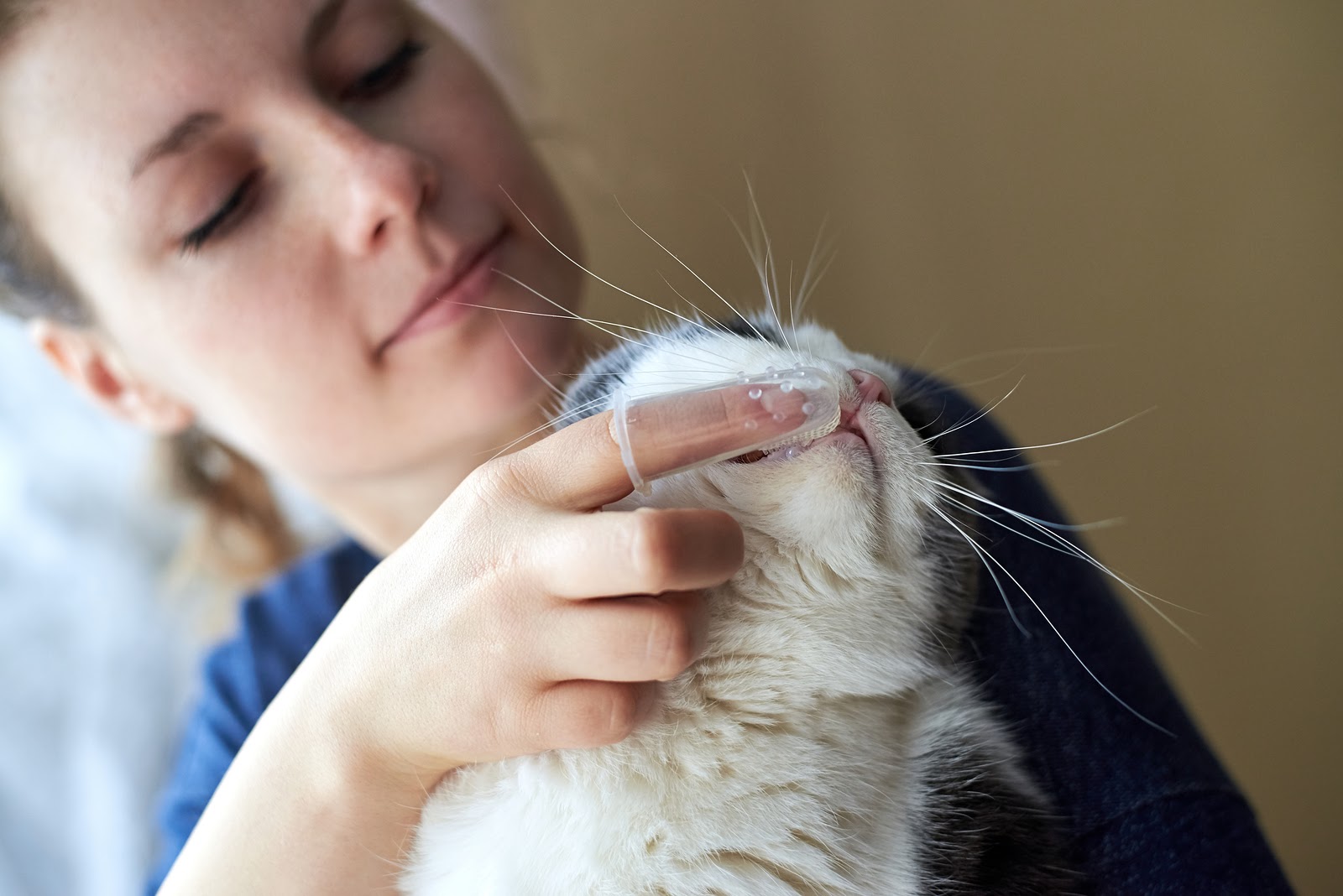
To prevent serious dental disease, Dr Grace Heng, a senior veterinarian at The Joyous Vet, recommends that pet owners clean and brush their pets’ teeth at least once daily — a routine that should not take more than 5 minutes. Your pet probably isn’t going to willingly let you brush his teeth the first time you stick a toothbrush in his mouth, so take some time to acclimate your pet to the process first, and consult your vet for brushing tips.
If you’re brushing your pet’s teeth for the first time, your pet may need a few weeks to get comfortable with the presence and movement of a toothbrush. Do so by simply massaging your pet’s lips in slow, circular motions for up to 1 minute once or twice a day.
When your pet is comfortable with this action, put a small amount of pet toothpaste (flavoured ones work best) on the toothbrush and let your pet lick the brush, and after immediately reward your canine. Do this for several days, increasing the time between licking and the reward. Human toothpaste can upset a pet’s stomach, so make sure to use a pet-friendly toothpaste such as Fresh Breath by TropiClean’s Oral Care Gel, which is designed to fend off plaque and tartar in your pets’ oral cavity!
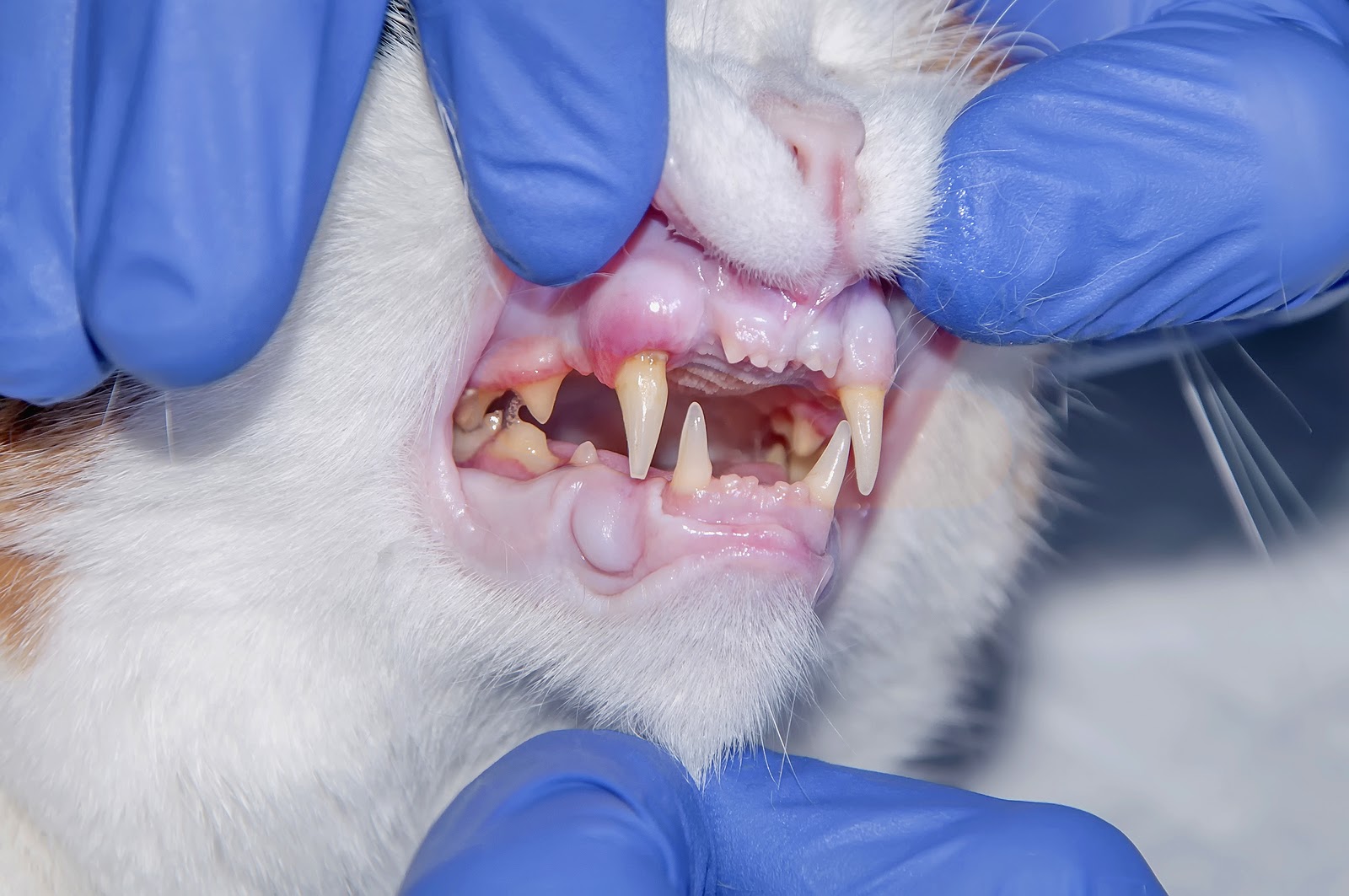
Regular oral exams performed by your veterinarian are part of any good dental hygiene program for your pet. Your vet will alert you to any existing or potential problems with your dog’s mouth. It’s also recommended to take your pet for professional dental cleaning once a year.
On top of this, many veterinarians like to put food to work, as nutrition is also linked to dental health. Feeding high-quality food, avoiding table scraps, and using treats that are specially formulated to keep teeth healthy are all easy steps you can take to support dental health.
If you notice any of these indicators of periodontal disease in your pet, it’s high time to bring your pet for a dental check-up:
From now til 30th September, book a dental consultation with The Joyous Vet and enjoy 20% off your bill by using the promocode HAPPYTEETH20 + get a FREE 2 WEEKS Fresh Breath by TropiClean dental trial kit.
Book your dental appointment with The Joyous Vet
Choa Chu Kang Outlet – 6769 0304
Yuan Ching Outlet – 6267 4137